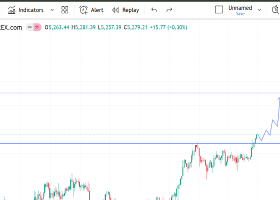Greece's Prime Minister Alexis Tsipras announced a referendum to be held on July 5 so that the citizens could vote whether they accept further cuts suggested by creditors or not. However, implications of 'yes' or 'no' votes will hardly be clear at once - neither for investors nor for citizens themselves.
What will Greeks vote for?
Greece and its international creditors, eurozone countries, as well as a couple of institutions - the
International Monetary Fund and the European Central Bank - have been wrangling for months to come up with a plan to extend the country’s
bailout package and unlock frozen rescue funds, however, the talk never made a progress, and on Tuesday Greece missed its $1.7 billion payment to the IMF.
On June 26 Tsipras shocked creditors, and the
broader market, by breaking off talks and calling a referendum
on a proposal offered by creditors last week.
The PM is calling on citizens to vote “no”, suggesting that a rejection of the proposals would strengthen Greece’s hand in the negotiations. On Thursday he said a “no” vote would allow him to sign a deal the next day.
More than just 'yes' or 'no'
The referendum asks voters to accept or reject the terms included in a June 25 proposal by the creditors. But, as MarketWatch explains it, Tsipras’s stunning move led European leaders to revoke that offer. So, effectively, Greek citizens will be voting on a proposal that is no longer on the table.
Moreover, many analysts put the stakes higher saying that a 'now' vote would mean exiting the eurozone. Whether it is worth staying in it or no is a controversial question over which even Nobel economists racked their brains.
Will 'no' vote really mean Grexit?
German Chancellor Angela Merkel and
other leaders have avoided making that connection, suggesting there is room for further negotiations even after a 'no'.
A post-referendum standoff is a bigger threat.
The Greek authorities announced a bank holiday that began last Monday and has imposed capital controls. Having suffered severe deposit outflows, the country's banking sector is being kept alive by liquidity via the Bank of Greece.
But the ECB ultimately decides
whether that liquidity remains in place. The bank's rules demand that this
emergency liquidity only be provided to solvent banks—that is a
stretch given that the banks are closed, Greece’s bailout program has
expired, and the country has defaulted on the IMF payment.
If the
ECB demands more collateral or cancels liquidity, it would be
devastating, leaving Greek banks unable to reopen until they are
recapitalized. Greece will then have no option, but to leave the euro.
What would 'yes' mean?
Talks will likely restart with the main focus on the ECB and a possibility for increased liquidity assistance. This would give Greece's lenders more operating scope, according to George Saravelos, strategist at Deutsche Bank.
In his opinion, the deal will not be concluded immediately.
Tsipras said earlier that he won’t step aside in the event of a “yes” vote, contrary to previous assumptions, which could deteriorate things between Greece and the creditors even further.
However, there is a light at the end of the tunnel, since the IMF said that the debt should be more serviceable.
As the New York Times puts it, it was a significant acknowledgment, and an indication that if or when bailout negotiations resume, Greece might win some relief from its debt of 300 billion euros, or about $330 billion. It just might not be relief granted to the leftist government of Prime Minister Alexis Tsipras.
The fund argued on Thursday that the five-month-old government bore the blame for having made Greece’s economic situation so much worse that a new €50 billion relief program is now necessary.



